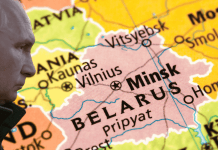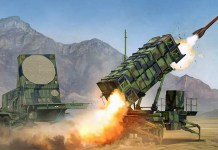The Maldives will elect a new President on September 9 to validate the fledgling democratic values of the atoll nation. However, the vote is seen as one between India and the People’s Republic of China, two countries that have shaped the narrative of Maldives’s geopolitics in recent years.
The Maldives has been a significant point of contention in Indian Ocean geopolitics in recent years. This is why observers interpret the election as a struggle for influence between China and India, especially since incumbent President Ibrahim Mohamed Solih brought pro-India politics after a bout of Abdulla Yameen Abdul Gayoom’s pro-Chinese stance.
The last election in the Maldives, held in September 2018, was widely viewed as a win for India and a loss for China. The Maldives grew closer to China during the previous administration, led by Abdulla Yameen Abdul Gayoom, by taking part in the Belt and Road Initiative, pursuing large-scale projects like the China-Maldives Friendship Bridge, and aiming to sign a free trade agreement with China.
In contrast, the current Solih administration continues to support India and adhere to its “India First” foreign policy, which supports India’s “Neighborhood First” philosophy. Although it does not consider itself anti-China, the Solih administration maintains friendly but circumspect bilateral relations with Beijing.
This time, there are eight contenders from five political parties and three independents, making it the most candidates running for president since the Maldives held its first multiparty presidential election in late 2008. President Ibrahim Mohamed Solih is running for re-election in a record-breaking second term despite several political obstacles.

The former president Abdulla Yameen, who is currently serving time in prison for accepting bribes and money laundering, and former president Mohamed Nasheed, the speaker of the parliament and a former ally of Solih who split this year over political differences, are the two formidable opponents who could have mounted a tough challenge had they run.
Solih still has several challenges, including a minor party in which Mohamed Nasheed is crucial. Mohamed Nasheed had left the ruling Maldivian Democratic Party (MDP) earlier this year due to escalating political tensions.
Following the schism that severely polarized party members, Nasheed’s supporters founded a new group called The Democrats, whose candidate, lawmaker Ilyas Labeeb, is one of seven opponents taking on President Solih.
Locals notice that capital Male’s Mayor Mohamed Muizzu, who is running for the People’s National Congress because imprisoned President Abdulla Yameen was disqualified from contesting, has also garnered much support.

However, there are reports that the soft-spoken Solih, whose pro-India leanings molded his debut administration and signified a strategic shift from the pro-China bent of his predecessor, has been courting Maldivian voters in constituencies outside of Male.
According to national opinion polls by an independent think tank, the 61-year-old, commonly known as “Ibu,” is in the lead before the first round of voting.
A late-August analysis of voter mood by the Baani Centre for International Policy suggested that “President Solih remains the most popular candidate” among eight competitors. However, it warned against picking a winner in the first round because 53% of respondents were “undecided.”
Malaysia Caught In The India-China Crossroads
India and China are the two rivals coveting influence in the Maldives due to the atoll nation’s location in the middle of vital shipping lanes in the Indian Ocean. India’s interest in the Maldives is sparked by its geographical proximity, while China’s interest is sparked by the Maldives’ strategic location along Beijing’s Maritime Silk Route (MSR).
After Yameen was elected president in 2013, relations between China and the Maldives improved. In 2014, President Xi Jinping visited the country to solicit support for the Belt and Road Initiative (BRI) initiative. Meanwhile, Yameen’s campaign on domestic dissent and opposition came under more and more criticism from India and other countries, prompting the Maldivian leader to move even closer to China.
Yameen leased islands and infrastructure projects to China, and the two nations inked a Free Trade Agreement despite ostensibly pursuing an “India First” policy. In exchange, China provided the Maldives with loans and large infrastructure projects, most of which came with ambiguous terms and conditions benefitting Yameen.
When Ibrahim Solih became the president in 2018, he set out to repair the political and economic harm his predecessor had done to ties between India and the Maldives. Since then, several Chinese proposals have been tabled, including initiatives under the BRI and the FTA.
However, Yameen-led opposition continued to foment trouble. The Progressive Party of Maldives (PPM) later started promoting the unfounded claim that Indian military personnel stationed in Maldives violated the sovereignty and advanced its ‘India Out’ campaign for more than a year. The foreign and defense ministries of the Maldives have vehemently rejected any Indian military presence on the atolls.
Eventually, in 2022, Maldives President Ibrahim Solih signed a decree stating that the opposition’s ‘India Out’ campaign is a “threat to national security.” Although Solih has made no bones about his pro-India leanings, he has kept China in the loop.

This has fanned New Delhi’s concerns about China’s potential objectives, especially the fears that China may use its economic clout to lure India’s neighbors into “debt traps” to gain leverage and establish a “string of pearls” of military outposts all over South Asia.
Beijing’s contentious lease of Sri Lanka’s Hambantota Port is frequently used as an example to support the argument against Chinese intentions. China seeks to expand its influence in the Indian Ocean Region (IOR), where the world’s busiest and most strategic shipping lanes lie.
The Solih administration hesitated to commit to a free trade agreement with China that was passed but never ratified by the Yameen administration. This hasn’t gone down well with Beijing. One other instance of Chinese disenchantment was the Solih government turning down an invitation to the November 2022 China-Indian Ocean Forum on Development Cooperation, which was intended to advance Xi Jinping’s new Global Development Initiative.
The Solih administration has benefited from Indian generosity, which has allowed it to pursue development initiatives and weather economic hardships. Since Solih took office, New Delhi has backed the Maldives with an estimated US$2.7 billion in grants and loans with favorable terms, regaining influence after losing it under Yameen’s pro-China administration.
In light of this, the Maldives’ foreign policy could take one of two distinct trajectories depending on the current round of election results. The nation will likely keep strengthening its ties with India if an MDP government remains in power while maintaining friendly but cautious relations with China.
However, if Yameen’s loyalists take power, the polity is expected to be bent in China’s favor yet again.
- Contact the author at sakshi.tiwari9555 (at) gmail.com
- Follow EurAsian Times on Google News




